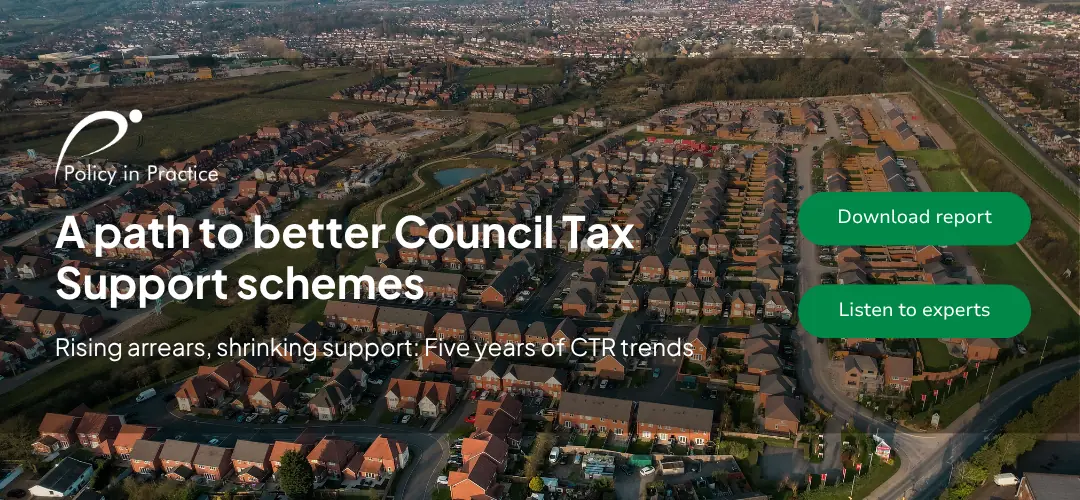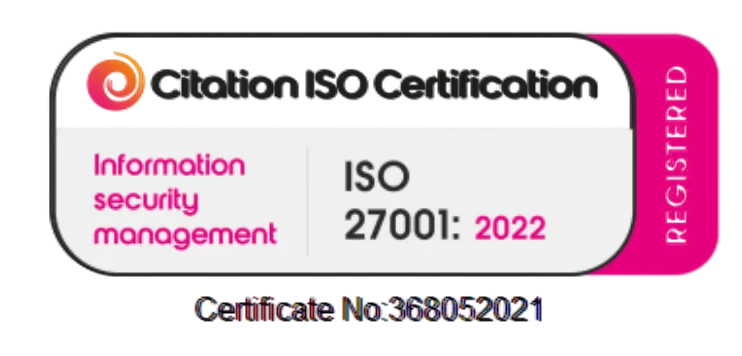Key lessons from the High Court ruling on Trafford Council’s local council tax reduction scheme

Last week the High Court ruled that Trafford Council’s new working age local Council Tax Reduction (CTR) scheme for 2025/26 was both unlawfully adopted and discriminatory towards disabled people and carers receiving certain benefits.
The council had introduced a banded scheme whereby discounts to Council Tax liability were determined by which band a claimant’s income fell within. The core issue arose from the treatment of Universal Credit and unearned income within the scheme.
For the purposes of the CTR scheme, income consisted of Universal Credit, with specific elements disregarded, plus unearned income and earned income. The implication of the ruling is that councils should be very careful when using partial Universal Credit and unearned income as part of their assessment for council tax support.
The judgment therefore has significant implications for the design and adoption process for working age CTR schemes nationwide.
In this blog, we examine the judgment and its implications for other councils, sharing best practice advice drawn from over a decade of experience in modelling CTR schemes.
Grounds of the challenge to Trafford Council’s council tax support scheme
The case against Trafford Council was brought by two claimants on two principal grounds:
- Unlawful adoption: The scheme was never lawfully approved by a vote of the full Council, as required under the Local Government Finance Act 1992. Instead, the decision was taken by the Executive Committee
- Irrational and discriminatory design: The scheme’s means test unfairly “double counted” certain sources of income, such as carer benefits and occupational pensions, that had already been taken into account when calculating Universal Credit (UC). This led to disabled people and carers being wrongly assessed as better off than they were and so denied vital support
High Court findings against Trafford Council
The Court held that:
- The scheme must be quashed, as it was not lawfully adopted. The previous year’s scheme will therefore remain in force
- The method of calculating income was irrational and unlawfully discriminatory, penalising disabled people and carers
- The claimants are entitled to compensation for the losses and hardship suffered under the unlawful scheme
What the ruling for Trafford Council means for other council tax reduction schemes
The judgment has significant implications for the design and adoption process for working age CTR schemes nationwide. As more councils look to adopt banded income schemes, there are valuable lessons to take on board, not just to ensure legal compliance, but also to deliver fair, accurate and sustainable support for low income households.
We explain the judgment in more detail below, but it’s important that each council takes proper advice on its own specific scheme to protect it from legal challenge. Trafford Council was not alone in introducing a scheme that assessed income for CTR purposes in this manner. However, Policy in Practice has advised clients against schemes like this which we think are likely to be challenged.
At Policy in Practice, we provide a comprehensive Council Tax Support modelling service that enables councils to make confident, evidence based decisions about their CTR schemes.
We support local authorities in reviewing, redesigning and successfully implementing CTR schemes. Our approach combines deep policy expertise with sophisticated household level modelling.
Whether you’re looking to review your current scheme, implement a banded model, or explore changes for 2026/27 and beyond, Policy in Practice can help you make confident, data driven decisions that stand up to scrutiny and support the residents who need help the most.
Unlawful adoption
Trafford Council’s proposed scheme was not lawfully adopted by the full Council, in contravention of Section 67 of the Local Government Finance Act 1992. Instead, it appears that approval was given by the Executive Committee before the full council meeting. Although consultations and discussions were held, the final decision making authority was bypassed. The Court concluded that this procedural flaw rendered the adoption unlawful.
Best practice advice on what to do
- Build in time for full Council approval within your decision making timeline
- Keep robust records of who approved the scheme, and when
- Include legal and democratic services early in the planning process
Irrational and discriminatory design
The Claimants argued that the Scheme’s design was irrational because it double counted certain income, resulting in arbitrary and unfair outcomes. They further contended that this discriminated against disabled individuals and carers.
The Council denied any fundamental flaw, attributing the problem to IT system limitations. It acknowledged a temporary double counting issue but argued that this was being resolved with its supplier and that any shortfalls could be addressed through discretionary relief.
The Court rejected these arguments, finding that the Scheme’s wording itself produced unfair outcomes, which could not be adequately remedied by reliance on discretionary support.
Best practice advice on what to do
- Consider simplifying your scheme. For example, by basing assessments for income banded schemes on earned income alone
- Ensure that CTR schemes take account of the mechanisms of Universal Credit
- Use modelling tools to test how different groups are affected before finalising the design
How did Trafford Council’s scheme double count income?
The double counting issue arose when claimants received unearned income, such as NI-based ESA or Carer’s Allowance, alongside UC. While UC awards are reduced to reflect such income, the CTR scheme did not properly align with this adjustment.
Example:
- A claimant receives a standard allowance in Universal Credit of £92.35 a week and a housing element of £100 a week (maximum UC: £192.35 a week). They also receive Carer’s Allowance of £83.30 a week. This reduces their UC award to £109.35 a week
- For CTR purposes, the housing element is ignored. The scheme therefore counted £92.35 a week (UC standard allowance) plus £83.30 a week (Carer’s Allowance) = £175.65 a week as income
- By contrast, another claimant with the same overall income solely from UC would only be assessed on £92.35 a week
The court found that this produced irrational and discriminatory outcomes. As the claimants argued, “the outcome of the Scheme is irrational because it produces a result which is perverse and arbitrary.”
Overcoming the challenge of software limitations
Too often, good policy intentions are undermined by IT system limitations. A scheme that looks fair on paper may behave differently in practice if the software cannot apply it accurately.
It is worth noting that the unfairness could have been avoided if unearned income had been fully offset against the UC elements taken into account for CTR. It appears that an IT issue prevented this from occurring.
Even if this had been possible technically, it would still rely on there being a sufficient amount of UC taken into account for CTR purposes to offset any unearned income.
Best practice advice on what to do
- Involve your IT or software partner early in scheme discussions
- Stress test proposals using real claimant data
- Confirm system capability before committing to any scheme design
- Talk to Policy in Practice. We have helped councils to identify and resolve issues with the implementation of schemes for clients. We are assessing which new claims are likely to qualify or need further investigation where software providers have fallen short
Four lessons for CTR scheme design and reform
This judicial review provides important lessons for councils when designing or amending CTR schemes:
- Lawful decision making: Future scheme designs must be formally approved by the full Council, not delegated to the Executive. Records of decisions, including when and by whom they are made, must be complete and transparent.
- Fair treatment of income: Councils should consider removing complexities in how both UC elements and unearned income are treated to prevent unfairness. For example, adopting banded schemes based on earnings alone avoids this issue.
- System readiness: Councils must ensure at an early stage that their IT systems can implement the scheme as designed. Policy in Practice has worked with many councils where IT limitations have shaped scheme options.
- Discretionary relief is no substitute: A scheme cannot rely on discretionary pots to correct design flaws. Where a scheme produces irrational outcomes, discretionary relief cannot rescue it from being unlawful.
With growing financial pressures, councils must make tough choices. But those choices must be lawfully made, technically deliverable, and demonstrably fair.
By focusing on clear, evidence based design, aligning closely with UC principles, and stress testing through real data, councils can avoid costly missteps and deliver targeted, impactful support.
Talk to us today about how we can help you model, consult on and implement a CTR scheme that works.





